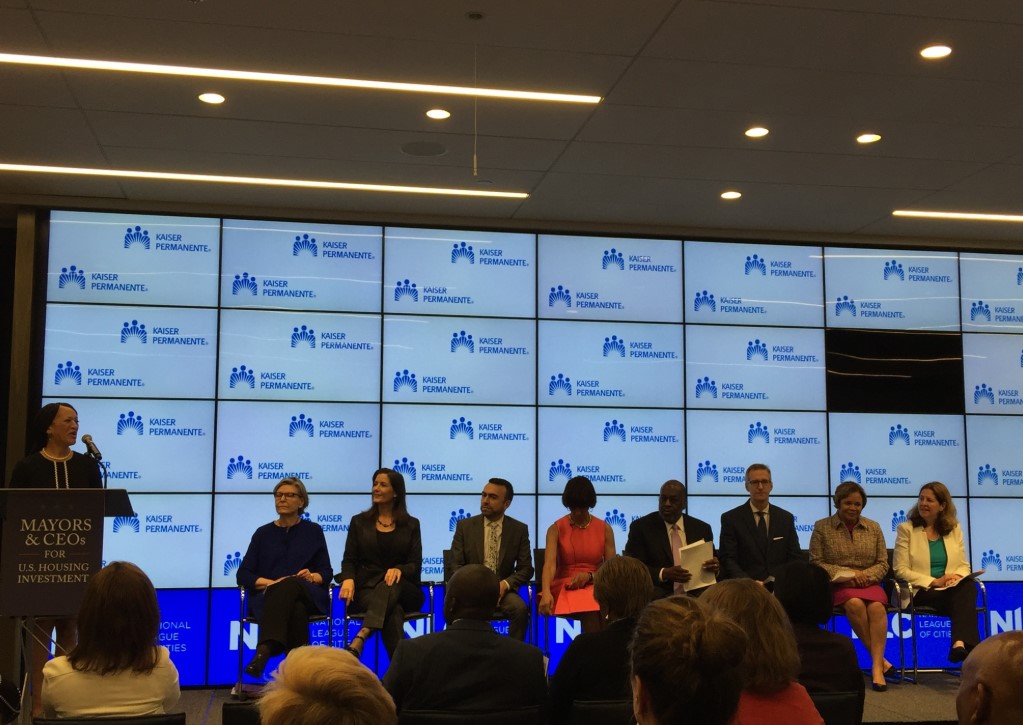Earth Day 2017 is April 22, a good time to consider the many ways both individuals and organizations can take steps toward greening the planet — whether it’s opting for products made without harmful chemicals, setting up workplace compost programs, or investing in renewable energy sources.
Kaiser Permanente, the largest integrated health care system in the U.S., is one organization that is leading by example with its dedication to environmental stewardship.
“We understand the clear connection between a healthy environment and the health of individuals,” said Kathy Gerwig, vice president of employee safety, health and wellness, and environmental stewardship officer at Kaiser Permanente. “Preventing environmental causes of illness is the main objective of our sustainability program. We also recognize that the health care industry’s impact on pollution and waste is substantial, and we want to be proactive in combatting it.”
Among the ways health care organizations can help green the planet:
 Embrace renewable energy. Green power sources, including solar and wind energy, are more accessible than ever. Rooftop solar installations and large-scale wind farms are two of many available options. In 2016, 46 percent of the electricity Kaiser Permanente used in California came from renewable resources.
Embrace renewable energy. Green power sources, including solar and wind energy, are more accessible than ever. Rooftop solar installations and large-scale wind farms are two of many available options. In 2016, 46 percent of the electricity Kaiser Permanente used in California came from renewable resources.- Insist on better products. There may not be room in the budget to buy exclusively sustainable products, but organizations can focus on certain areas that will make a big difference, such as more efficient electronics. Kaiser Permanente recently earned the EPEAT Purchaser Award for buying greener electronics in 2016. Over its lifetime, this equipment will result in a number of environmental impact reductions, including avoiding the disposal of 124 metric tons of hazardous waste — equal to the weight of 1,009 refrigerators.
 Eat what you preach. The industrial food chain can negatively impact health, exposing workers and consumers to harmful chemicals and creating pollution when food is transported long distances. Locally grown, sustainably farmed and processed food choices are good for the environment and for individual health. To this end, Kaiser Permanente buys nearly 25 percent of its food sustainably, and aims to raise that number to 100 percent by 2025.
Eat what you preach. The industrial food chain can negatively impact health, exposing workers and consumers to harmful chemicals and creating pollution when food is transported long distances. Locally grown, sustainably farmed and processed food choices are good for the environment and for individual health. To this end, Kaiser Permanente buys nearly 25 percent of its food sustainably, and aims to raise that number to 100 percent by 2025.- Set a goal and strive to reach it. Starting with small behavioral changes can make a big difference, but having an ambitious goal to aim toward can also be a great motivator for significant change. Kaiser Permanente has set ambitious sustainability goals to meet by 2025, including recycling 100 percent of non-hazardous waste, reducing water use by 25 percent per square foot of building space, and becoming carbon net positive.
Thanks to Kaiser Permanente Share for providing this blog.


